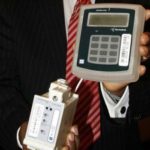Every crisis is a learning opportunity. The pandemic has been unexpected and painful, but also useful for reflecting and taking actions that lead us to be better prepared.
Build an emergency fund.
The emergency fund is not an investment. It is not money that is multiplied with high rates of return, but rather it is stored – but available – in a normal or programmed savings account.
It is a form of financial insurance. In times of uncertainty, it reduces stress and allows you to continue with your financial expenses and commitments for a while.
Make a plan and start saving. Save 10% of your income as soon as you receive it. If this is not possible, set an amount and save it every month. It should be your first expense, the most important. Try to have at least the equivalent of two months of income available.
Take control of your debts.
It is recommended that non-basic expenses and debts do not exceed 40% of income, since in the face of an unforeseen event you will not have the capacity to meet your obligations. In addition, non-payment generates additional costs for default interest and collection management.
Before acquiring a new debt or if you need to refinance a loan that you already have, know your payment capacity using this calculator .
Make a budget.
In times of crisis, it is very important to know where you spend every dollar. Write down everything you pay to the penny, whether in cash, by card, transfer, etc. This way you will know what to cut or delete. Lean on this planner to ensure that you don’t spend more than you earn and that your budget covers your basic expenses first.
Do not make decisions that harm you.
Facing medical expenses due to Covid-19 or losing your job can make you make decisions to alleviate the uncertainty of the moment. However, don’t lose sight of the long term. Selling assets, for example, will not always be the best because prices drop under these circumstances. Rather, force yourself to rethink how and where you spend money, how to spend less and save more.














